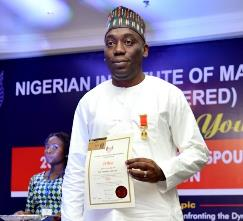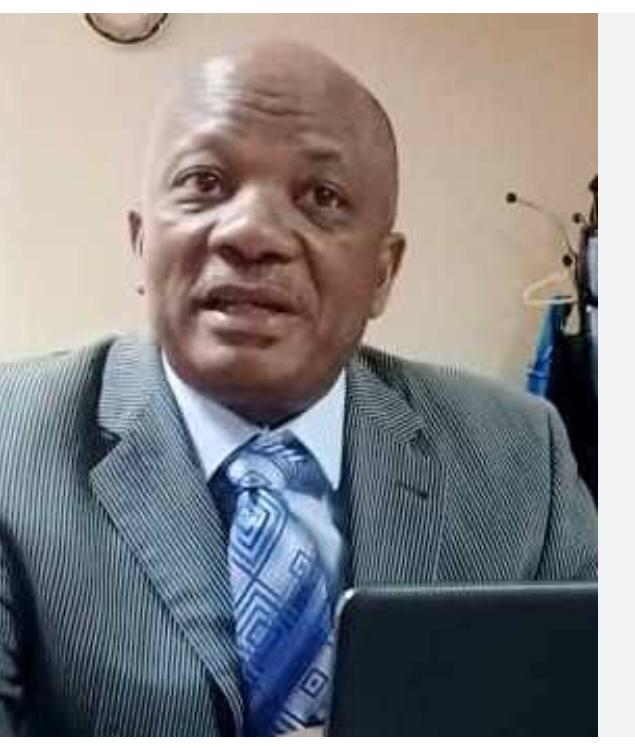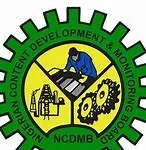By Sunday Umoren
We cannot progress to dealing with the collaborations and partnerships without having a bit of refresher on Blue Economy.
The blue economy creates a substantial number of jobs and economic opportunities worldwide. For example, data released in Europe at the beginning of the 2020s show that the EU blue economy employs over 3.6 million people, has a turnover exceeding €620 billion, and accounts for €171 billion in Gross Value Added (GVA). Offshore wind energy, shipbuilding and repair, maritime transport, marine living resources, and port activities demonstrate the most significant increase in nominal GVA. *porteconomicsmanagement.org
The blue economy encompasses all economic activities based on or related to the ocean, seas, and coasts. This includes a wide variety of economic sectors, such as fisheries and aquaculture, coastal tourism, shipping, ports, marine renewable energy and etc. The world depends on the ocean for trade, food, energy, tourism, transport recreation and general sustenance and many other goods and services.
Three oceanic regions are identified and used in articulating the ocean economy, and they are the coastal areas, the Exclusive Economic Zones (EEZ) and the deep sea (or high seas). UNCLOS defines the distances and authourities of these ocean regions. The extraction of resources in these regions are also govern by states and international regulations as designated by the United Nations.
Port economics banded the related activities under three distinct groups (harvesting of living resources, extraction of non-living resources and maritime trade and commerce).
The drivers are as listed and include the new revenue head, food security, energy demand etc.
In my simplistic approach, I will define blue economy as ‘any economic activity of the high seas and related operations in/above all waters connected there-to /therewith; it shall include activities there-about and there-in as approved by an appropriate authority or country. The waters include roadsteads, harbours, rivers, lakes or inland waterways connected with the high seas. (SMC 2024)
The above could be summed up to these songs ‘Lean on me, when you are not strong and/or I need you, you need me.
Actions:
* We need to have our maritime policy and strategy and then map our maritime cluster
* Stakeholders’ identification and engagements.
Stakeholders’ Identification (Blue Economy):
resources in its maritime cluster may be limited in its ability to totally or substantially benefit from the abundance in its maritime domain. In addition, maritime-related activities are capital intensive and may require novel ideas and skills that are not readily available.
The demand of the Blue Economy increases with the distance from the baseline (increasing as its operation theatre moves from coastal areas, the Exclusive Economic Zones (EEZ) to the deep sea (or high seas). In most instances, collaboration and partnerships provide the only means of actualising the prospects of the blue economy.
marine energy. These partnerships can provide funding and innovative technologies.
5. Community Engagement
– Involving local communities in decision-making ensures that initiatives reflect their needs and knowledge. Programs often focus on sustainable fishing practices and marine conservation efforts, empowering local stakeholders.
6. Research and Academia
– Partnerships with universities and research institutions facilitate data collection and analysis essential for informed policy-making. Collaborative research initiatives help address local challenges such as biodiversity loss and overfishing.
7. International Collaboration
– Engagement with international organizations (like the UN, IMO, ILO, World Wildlife Fund (WWF) and NGOs enhances funding opportunities, technical support, and the sharing of best practices for sustainable marine management.
8. Capacity Building
– Training programs for local communities, fishermen, and government officials are vital for fostering skills in sustainable practices, marine resource management, and conservation efforts.
9. Technology Sharing
Collaborative efforts to share technology can enhance the monitoring of marine resources, improve fishing practices, and support the management of marine protected areas. Innovations such as satellite tracking and data analytics play a significant role.
10. Climate Change Adaptation
– Partnerships focused on climate resilience, helping coastal communities adapt to changing environmental conditions, and integrating ecosystem-based approaches into development planning.
11. Policy Development
– Sound policies are crucial to a sustainable blue economy and the proper collaboration of all stakeholders ensures the formation of good policies that will drive the economy.
Enforcement:
There can be no successful impact of the blue economy without a strong enforcement drive. The exploitation and exploration of the oceans have the potential of having great impact on the nation’s revenue and GDP. However, the ocean faces multiple challenges due to increasing pressure from human actions and impacts, e.g. over-exploration, over-exploitation, plastic pollution, overfishing, ocean acidification, etc. These actions and many more are a clear contravention of the U.N. Sustainable Development Goals (SDGs) “Conserve and sustainably use the oceans, seas and marine resources for sustainable development”.
The restoration of sanity in the maritime domain is through having responsible operators which is often not possible but mostly achievable through ‘enforcement’.
The enforcement could be through:
* Review of the constitution
* Review of the Merchant Shipping Act and other related acts/regulations.
* Strong legal backing with reward and consequence management
Empowerment of law enforcement agencies with clear delineation of powers and authority (Coast Guard, Marine Police, Navy and others
* Strong Regulatory Authorities
Flag State
Port State
Revenue and Licensing authorities
Way Forward:
The way forward is the realisation that silo mentality will lead us nowhere and thus the need for us to note the interdependency that has over the centuries existed for the commonwealth of all. We grew up hearing the adage ‘the sky is wide enough for all stars to shine’ but today I will implore you all to rephrase it to ‘The sea is wide enough for all stars to shine and glow’.
We need to focus on business growth and investment opportunities and also act responsibly with our focus on SDG 14 – sustainable ocean use.
*Captain Sunday Umoren, the Secretary General, ABUJA MoU presented this paper at the 4th annual symposium and workshop organized by African Marine Environment Sustainability Initiative (AFMESI) in Lagos…recently.











